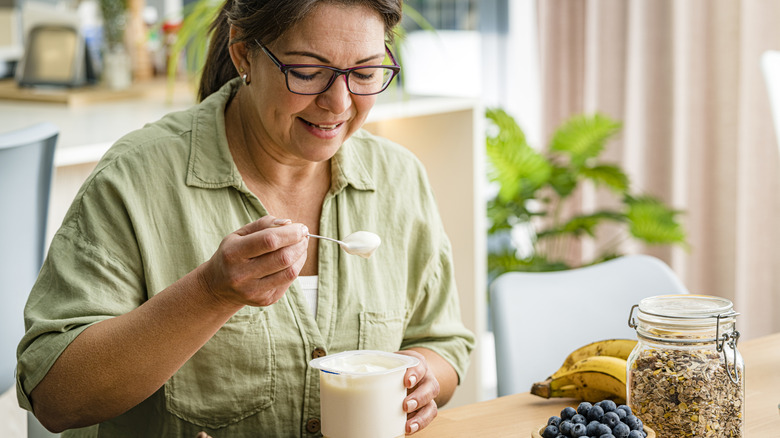
It’s widely recognized that blueberries are a superfood. These fruits are filled with essential vitamins, nutrients, and antioxidants that promote overall health and wellness, making them a valuable component of a balanced diet. Their nutritional profile is outstanding, with a cup providing an impressive 25% of the recommended daily intake of vitamin C.
Moreover, they can help reduce harmful oxidative stress and prevent free radical damage. Dietitian Julia Zumpano, RD, LD, from the Cleveland Clinic, states, “Antioxidants create a barrier or a shield around the cell to help protect it from being damaged.” The primary antioxidant in blueberries, anthocyanin, gives them their deep blue color and numerous health benefits. Research published in Nutrients indicates that anthocyanins may regulate blood pressure, and there’s substantial evidence that they can lower the risk of heart disease.
Now, there might be another reason to include blueberries in your shopping list: they could positively impact brain health, according to a 2022 study published in Nutrients. It found that over 12 weeks, participants who ate half a cup of blueberries daily experienced significant improvements in “memory, learning, and long-term memory.” This could be motivation enough to increase your blueberry intake, whether you’re interested in supporting cognitive function naturally or you simply believe in the saying “you are what you eat.”
How blueberries support brain health

“There is epidemiological data suggesting that people who consume strawberries or blueberries regularly have a slower rate of cognitive decline with aging,” Robert Krikorian, who led research at the University of Cincinnati on the topic, tells the Fisher Center for Alzheimer’s Research Foundation. The findings indicate that the flavonoids in blueberries can neutralize free radicals responsible for cellular damage. If left unchecked, such damage could contribute to age-related cognitive decline and increase the risk of neurodegenerative conditions like Alzheimer’s disease.
Flavonoids are particularly powerful due to their ability to cross the blood-brain barrier and actively support cognitive function. Once in the brain, they may help reduce the impact of free radicals and decrease inflammation, both of which are associated with common brain health issues like memory loss and slowed processing. Some research even suggests that diets high in flavonoids are linked to improved memory, learning, and brain performance as we age.
In summary, the compounds that give blueberries their rich color can also help protect your brain from damage and keep your mind sharp. Adding a handful of blueberries to your daily routine could be a small yet significant step toward safeguarding your cognitive health in the long run.
The fiber connection

A single cup of blueberries contains at least 4 grams of fiber, and there is a significant connection between the gut and the brain. According to psychologist Dr. Margot Green, PhD., of Kaiser Permanente, “It’s the ultimate mind-body connection.” She explains that the gut not only functions as the body’s digestive center but also sends messages to the brain to support overall functionality. When your gut is healthy, it supports the vagus nerve, the primary pathway through which it communicates with the brain.
Increasing your fiber intake is a powerful way to ensure that your gut operates smoothly. The healthier it is, the more efficient its communication and the healthier your microbiome. A healthy microbiome produces vital postbiotics during digestion that reduce brain inflammation. It also supports serotonin production, which promotes better sleep — another crucial factor in protecting brain health throughout life. Additionally, consuming blueberries may improve skin health, as a healthy gut can help manage various skin disorders, according to a 2023 paper in Antioxidants. (Here are other ways eating blueberries every day benefits your health.)
Blueberries are versatile enough to be incorporated into various meals. As part of a balanced breakfast, you can sprinkle some on top of cereal or add them to your oatmeal for a significant fiber boost to start your day. They make a great addition to a refreshing salad, providing a contrast to savory flavors. You can also include them in fruit salads, make refreshing blueberry smoothies, bake them into healthy desserts, and create glazes for meat dishes.




